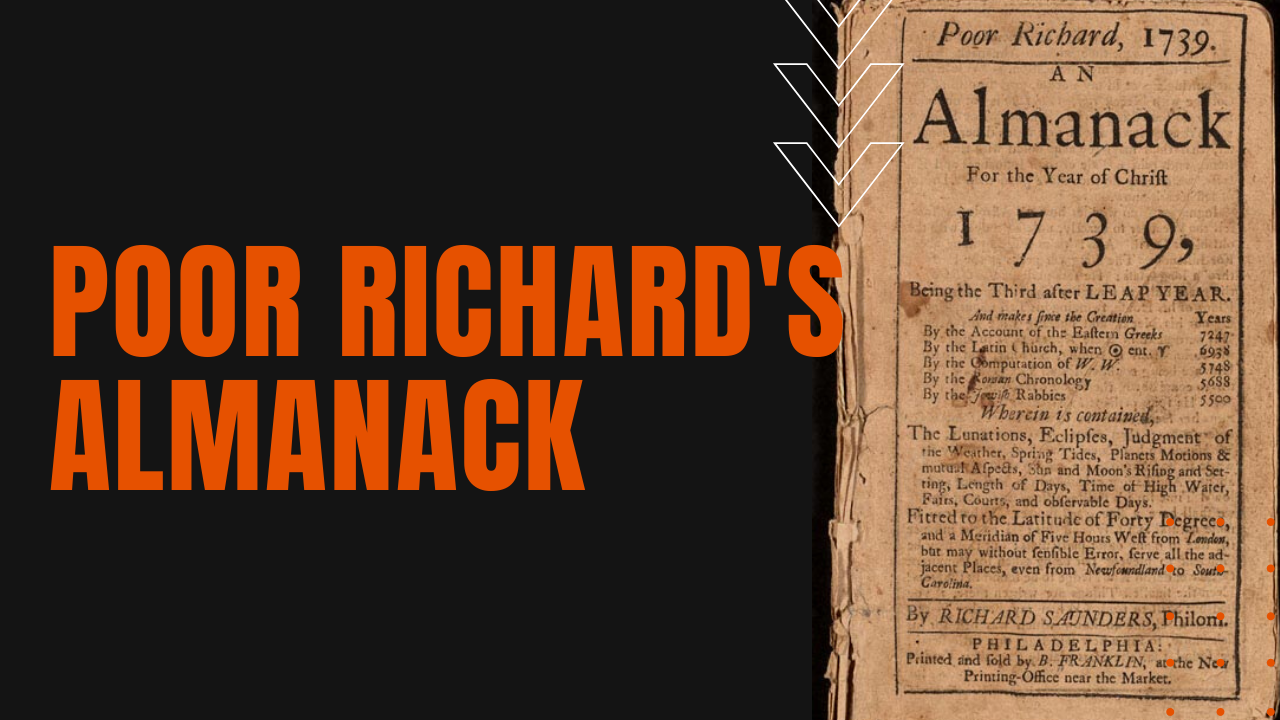Poor Richard’s Almanack But Ben Franklin’s Aphorisms

Almanacks were wildly popular in colonial America, offering a mixture of seasonal weather forecasts, practical household hints, puzzles and other amusements.
At the age of 27, Ben Franklin published his first Poor Richard’s Almanack in 1732, growing his brainchild in popularity for the next 25 years, primarily because of its extensive use of wordplay, as well as some of the witty phrases coined in each year’s edition, many of which have become apart of the American vernacular.
Franklin adopted the pseudonym of “Poor Richard” for his fictional author, Richard Saunders, and each of his yearly almanacks contained a calendar, weather forecasts, poems, sayings, as well as astronomical and astrological information, including the occasional mathematical exercise. Poor Richard’s Almanack is chiefly remembered, however, for being a repository of Franklin’s many aphorisms and proverbs, many of which live on in American English today.
Ben Franklin Quotes
“No pain no gain” is a spinoff of Franklin’s “There are no gains without pains.
“Diligence is the mother of good luck.”
“Keep thy shop and thy shop will keep thee.”
“Fools make feasts and wise men eat them.”
“To be humble to superiors is duty, to equals courtesy, to inferiors nobleness.”
“After crosses and losses Men grow humbler and wiser.”
“Pride dines on Vanity and sups on Contempt.”
“It is ill-manners to silence a fool and cruelty to let him go on. The wise man draws more advantage from his enemies than the fool from his friends.”
“He that lives upon hope will die fasting.”
“Hear no ill of a friend, nor speak any of an enemy.”
“Necessity never made a good bargain.”
Published without interruption from 1732 to 1758, Franklin’s almanack sold exceptionally well during its long print run, reaching an annual printing of 10,000 copies a year, making Poor Richard’s Almanack one of the first bestsellers in American history.
